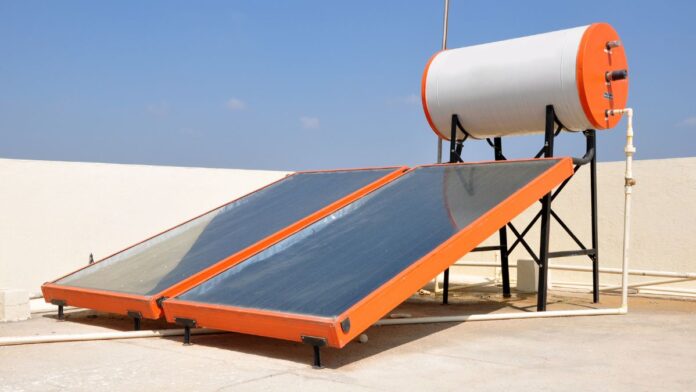Kenya aims to grow its use of renewable energy by creating fresh rules that demand designs for solar water heaters be incorporated into every new and current building. The draft Energy (Solar Water Heating) Regulations, 2022 have been released for public input. These regulations were developed by the Energy and Petroleum Regulatory Authority (Epra). In accordance with these rules, all premises – whether domestic or commercial – must possess a solar water heating system.
This isn’t the initial effort by EPRA to make installing solar water heating systems compulsory in Kenya. In 2012, the energy regulator gazetted Energy (Solar Water Heating) Regulations, 2012. The purpose was to encourage the use of solar water heating in industrial, commercial, and residential buildings. Nonetheless, these rules encountered difficulties during their application, and they were put on hold in 2018.
As per the new rules, each premise must include in its design a provision for a solar water heating system. Those who develop housing estates, promoters of construction, owners of premises, as well as architects and engineers who are involved with the design or building process, will have a responsibility to meet these requirements.
The rules being suggested are for every structure, both domestic and commercial. This includes old and new houses for living in, hotels, lodges, clubs, restaurants, or cafeterias, as well as laundries. The hospitals along with health centers are also included here. Moreover, universities are part of it too, like colleges, not forgetting boarding schools plus other learning institutions all fall under these proposed regulations.
The reason why these regulations are being proposed is to establish a common standard for creating, importing, designing, setting up, and using solar water heating systems in Kenya. Daniel Kiptoo, who works as EPRA Director-General, stated that it would help reduce the country’s need for fossil fuel and promote the use of clean energy which can be renewed again.
Yet, these fresh rules might come across comparable difficulties just like the old ones did. Those who own land, people who rent, and homeowners have been making protests that applying them will create a big financial burden because retrofitting their places with solar water heaters would be expensive. In a study done by JKUAT Enterprises Ltd’s researchers, whom EPRA hired last year; they found out that adding cost for these solar heaters goes against what the government wants, which is giving everyone a chance to get affordable housing (Star Newspaper 2022). The research also discovered that the heaters are not a worthwhile investment, as the money spent on them would only be recovered after around 10 years.
Not only cost problems, but earlier regulations also had limits on penalties and imprisonment. The fine of Sh1 million for breaking the rules is not in line with the Statutory Instruments Act 2013 that says fines cannot be more than Sh20,000 and jail time should not exceed six months.
Even though the fresh rules might encounter obstacles, it’s evident that the Kenyan government is devoted to raising renewable energy usage and lessening its reliance on non-renewable sources like coal or gas. The utilization of solar water heating systems can assist in decreasing Kenya’s carbon impact and endorsing a cleaner, more lasting future.

